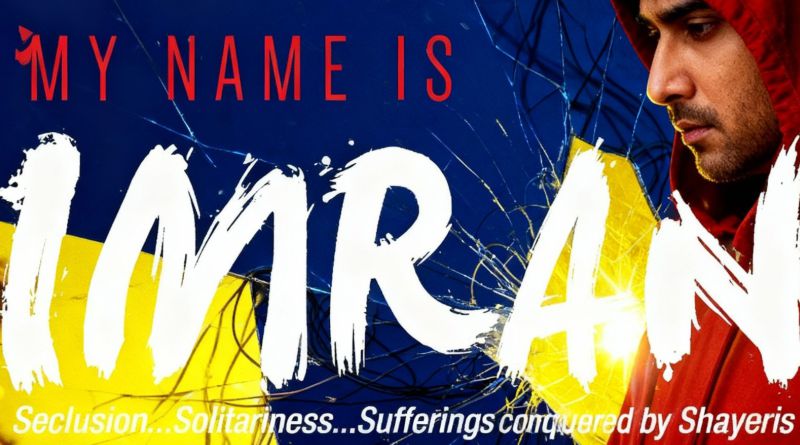My Name Is Imran: When Poetry Becomes a Lifeline
In the crisp autumn air of Srinagar, where the chinar leaves rustle like whispered verses, a film quietly stole the spotlight at the Kashmir World Film Festival. But it wasn’t just the cinematography or the direction that moved hearts — it was the soul of the story, the man behind the words, and the courage etched into every frame. The film was titled My Name Is Imran, and its protagonist, Imran Chowdhury, didn’t just act — he lived the story.
Directed, written, and shot by Abhishek Ganguli under the banner of Cinema For A Cause, My Name Is Imran is not your typical narrative. It’s a cinematic ode to resilience, a deeply personal journey into the world of Bipolar Disorder, and a celebration of how art — especially poetry — can become a lifeline. Imran, a poet by heart and a warrior by circumstance, transforms his emotional turbulence into lyrical beauty. His Shayeris are not just verses; they are survival songs, stitched together with pain, hope, and a fierce will to live.


The film’s journey to the Kashmir World Film Festival was more than a screening — it was a homecoming of sorts. Imran stood before a packed auditorium, not as a character on screen, but as a living testament to the power of vulnerability. He spoke candidly about his struggles, his diagnosis, and the long nights when words were the only companions. The audience listened, not with pity, but with admiration. Here was a man who had turned his inner storm into a lighthouse for others.


What makes My Name Is Imran so compelling is its refusal to romanticize suffering. Instead, it honors the messy, nonlinear path of healing. Imran’s poetry doesn’t shy away from darkness — it dances with it, wrestles it, and ultimately finds light. His verses echo in the minds of viewers long after the credits roll, reminding us that every person fighting an unseen battle deserves not just empathy, but celebration.
In a world where mental health is often cloaked in silence, My Name Is Imran breaks the mold. It’s not just a film — it’s a movement. It invites us to see beyond the diagnosis, to honor the artist within, and to believe in the transformative power of storytelling. As Imran stood in Srinagar, sharing his truth, he didn’t just win applause — he won hearts.
And perhaps, that is the real triumph. Not the accolades, not the festival screenings, but the quiet revolution of one man’s voice rising above the noise, reminding us all: healing begins when we dare to speak.




